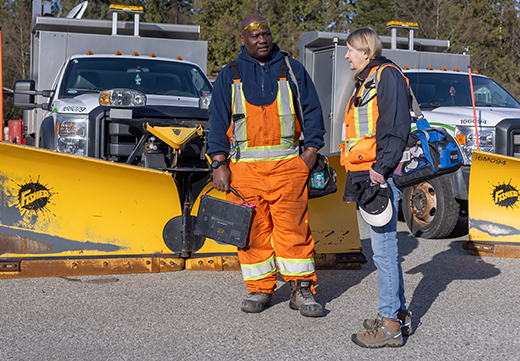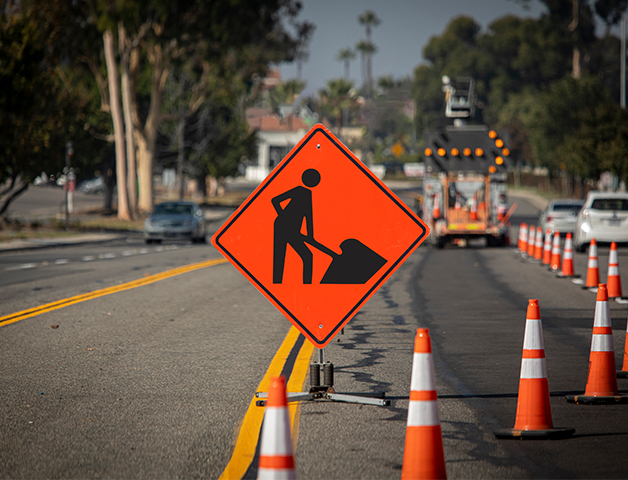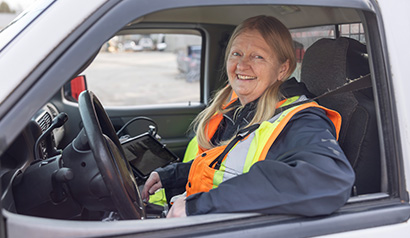Driving for work is dangerous. It doesn’t have to be, since most crashes, injuries, and deaths are preventable. Together, employers and employees can help ensure all work drivers and roadside workers get home safe at the end of their shift.
Facts about Road Safety
Behind every road safety crash statistic is a family member, friend, co-worker, or neighbour who was seriously hurt or killed. WorkSafeBC statistics for 2019 through 2023 for BC show:
of traumatic workplace deaths were due to vehicle crashes.
deaths from work-related vehicle crashes every year, on average.
people injured and off work from work-related vehicle crashes every year, on average.
Slow down, pay attention in work zones
Warmer weather means more crews working at the roadside, more cones, and more changes in traffic patterns. Keep your eyes up and speed down.

Next winter starts now
How did your drivers do this last winter? Use their experiences to start planning safety improvements you can make for this fall and winter.









